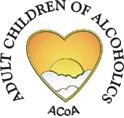
|
|
|
Cultural Link |

|
FEBRUARY QUESTION A national survey to determine awareness about risk factors and prevention of heart disease and stroke found that women got most of their information on these topics from what source?
Email your response to nwosu@etsu.edu by 4:30 pm on February 9. A prize will be awarded to one winner, selected at random among those who submit the correct answer.
Answer to the January Question: Surveillance by the California Birth Defects Monitoring Program has documented racial and ethnic gaps for birth defects. Larger gaps were found between rate of birth defects for US born and foreign born African-American mothers (28/1000 for US born vs. 16.8 for foreign born) and between US born and foreign born Asian mothers (12/1000 for US born vs. 19.8 for foreign born). When looking at birth defects by race alone, the gaps were much smaller (17.5/1000 for Blacks, 16.2/1000 for Whites, 15.2 for Latina/Hispanics, 12.9 for Asians. California Birth Defects Monitoring Program Discoveries & Data Center
Did You Know?¨ Past STD diagnosis among adolescents is associated with increased knowledge about STDs but not with increased use of condoms.
¨ African-Americans had the highest death rate from residential fires in 2003 of any racial or ethnic group: 2.2/100,000.
¨ Treatment for alcohol-related problems for some Hispanic populations is more often sought in faith based environments, than in clinics.
¨ Low income immigrants from Chinese, Vietnamese, and Hmong share some common health beliefs, including savoring the importance of fresh (not frozen) fruits and vegetables. |
Health Links on Diversity |
|
Article of the Month James DC Factors influencing food choices, dietary intake and nutrition-related attitudes among African Americans: application of a culturally sensitive model. Ethn Health 2004; 9 (4): 349—67.
|
|
The listing below represents just a few of the resources available to promote knowledge, awareness and discussions on diversity in health care among ETSU students, faculty and staff.
|
TOPIC TITLE & LOCATION |
|
February Newsletter References For more information or assistance contact Elaine Evans, Reference Assistant, COM Library,
For more information or assistance contact Elaine Evans, Reference Assistant, COM Library, evanse@etsu.edu. |
|
FEBRUARY 2007 |




|
America’s African-American Heritage
The Civil Rights Movement 1945—65
Music Videos Photos Speech Clips |
|
Children of Alcoholics
|
What is known about alcohol problems in special populations and what are promising areas for future research? Treatment for alcohol-related problems: special populations research opportunities. Consider the effects of having adverse childhood experiences vs. having a parent with alcoholism. Adverse childhood experiences, alcoholic parents, and later risk of alcoholism and depression Survival roles, identity development, community perception of alcohol use in the rehabilitation of African American Adult Children of Alcoholics. African American Adult Children of Alcoholics: The Impact of Cultural Influences |
|
Heart Health Awareness
|
How aware are American women about their cardiovascular risk? What does this longitudinal national survey reveal about knowledge of CVD among women at highest risk for heart disease? Tracking women’s awareness of heart disease: An American Heart Association National Study Cultural issues explored in CVD risk. Knowledge and practice: the risk of cardiovascular disease among Asian Indians. Results from focus groups conducted in Asian Indian communities in Northern California Focus groups of three low income Asian American groups yield some common attitudes toward health. Seizing the moment: California’s opportunity to prevent nutrition-related health disparities in low-income Asian American Population |
|
Burn Awareness
|
Residential fires are most common between December and March. How do minorities fare in residential fire related deaths? Highlights in Minority Health 2006 Burn Safety Poster winners Consider some other ideas that might be used to reach various minority groups. Advice for health professionals on how to educate parents on preventing children’s burn injuries. Childhood Injury: A Status Report Part 2 |
|
Condom Day
|
What is so great about condoms? Condoms: effective birth control and protection from sexually transmitted diseases. How do perceptions of condom use by peers effect women’s condom use? Factors Influencing Condom Use and STD Acquisition among African American College Women Do adolescents at an STD clinic automatically apply their knowledge about STDs to condom use? Association of adolescents’ history of sexually transmitted disease (STD) and their current high-risk behavior and STD status: a case for intensifying clinic-based prevention efforts. What does this research indicate about increasing condom use with a high risk population? Main partner’s resistance to condoms and HIV protection among disadvantaged, minority women |
|
Campus Arts, Cultural, & Health Awareness Events |
||
|
The Impact of the Aging Process: for Caregivers and Loved Ones |
2/1 |
Mini-Dome, Room E205 |
|
‘The Age of Creativity’ - A Women’s Professional Enrichment Series |
2/1 |
WRC, Panhellenic Hall |
|
Meeting: Men Against Violence—Men only |
2/5 |
Building 12, 311 |
|
Lecture, ‘An Analysis of the 2006 Congressional Elections and the Consequences for African Americans |
2/6 |
Carroll Reece Museum |
|
2/6 |
Culp Center |
|
|
2/8 |
Mini-Dome Register at 96130 |
|
|
Health Professions Job Fair |
2/12 |
Culp Ballroom |
|
Exhibit: Eyes Wide Open |
2/12 |
Borchuck Plaza |
|
Play: The Meeting |
2/17 |
DP Culp Center, Auditorium |
|
2/20 |
DP Culp Center, Ballroom |
|
|
2/21 |
Culp Center, Dining Rm 2 |
|
|
2/20-21 |
DP Culp Center, Ballroom L |
|
|
2/24-25 7:30PM |
Bud Frank Theatre, Gilbreath |
|
|
2/25 3:30PM |
DP Culp Center, Auditorium |
|
|
Alzheimer’s Disease: Dealing with Unreality in a Positive and Supportive Environment |
2/27 |
DP Culp Center, East Tennessee Room |